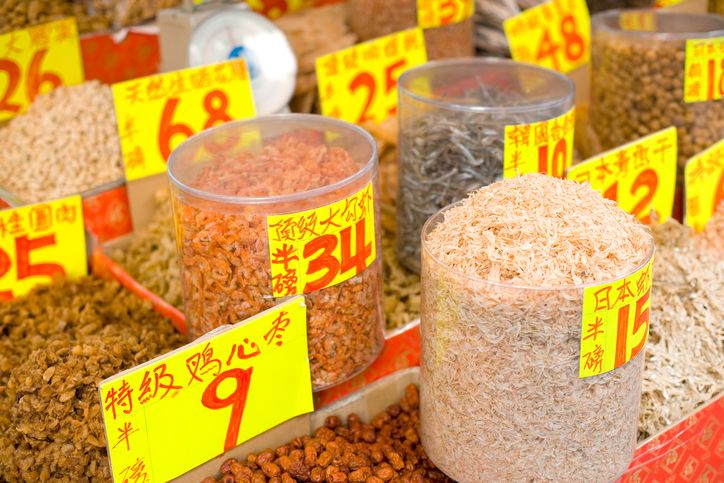Hong Kong-based cultured meat startup Avant Meats, which grows ‘animal-free’ proteins from the cells of fish and other marine organisms for food, skincare, and other applications, has raised $3.1 million in seed funding.
Investors taking part in the round included China Venture Capital, Lever VC, CPT Capital, Artesian, ParticleX, Loyal VC, AngelHub, and 208 Seed Ventures.
PTG Food — a Hong Kong-based group of food supply companies — also joined the round.
Markus Haefeli, chairman of Regal Springs — which claims to be the world’s largest “responsible producer” of tilapia fish — was another investor.
The involvement of a more traditional producer of seafood may come as a surprise, given that companies creating ‘lab-grown’ alternatives, like Avant, might typically be seen as aspirant competitors to them.
But Avant co-founder and CEO Carrie Chan believes that the startup and Regal Springs “have the same targets and goals.”
“Our business model is the same: turning feed and nutrients into animal protein,” she told AFN.
“The target customers are also the same; [we’re both in] B2B material supply. The two approaches to yield fish products and marine proteins are not in direct competition to us, but instead complement each other in providing for the broad variety of market demands.”
In a statement, Haefeli said he was sold on the startup’s ability “to cultivate animal proteins from a fully traceable system [that] will offer additional assurance to food and skincare brands demanding the highest level of functionality, safety, and accountability.”
A similar move in September saw aquaculture investor Aqua-Spark lead a $12.6 million Series A injection into Shiok Meats, a Singaporean startup developing ‘lab-grown’ lobster and shrimp meat.
“Aquaculture already seems to compete with wild-caught seafood, which does a disservice to both sectors,” Aqua-Spark co-founder Amy Novogratz told AFN at the time.
“This is why we are getting into the space – to help influence the development and make cell-based seafood a vital part of the industry rather than a competitive subsector,” she said.
“The truth is we’re going to need to produce a tremendous amount of protein in the next few decades, and our best option for offsetting the demand for accessible, sustainable, healthy offerings will be [for conventional aquaculture and cellular meat production] to support each other.”
Cellular swim bladders & cultured sea cucumbers
Launched in 2018, Avant’s initial product focus has been the development of cell-based fish and seafood products tailored to consumers in east Asia.
These include fish maw (otherwise known as the swim bladder, the organ that helps many fish species to maintain buoyancy in water) and sea cucumbers (despite its name, an animal rather than a plant), both of which are highly valued in Chinese cuisine and are often sold in dried form.
Fish maw is also used worldwide as a source of collagen, and to produce isinglass for the clarification and stabilization of beer and wine.
In fact, rising demand for fish maw has come with a significant impact on the marine environment, with the product acquiring the nickname of “aquatic cocaine” due to the eye-wateringly high prices it can command, according to the Environmental Investigation Agency (EIA).
An EIA report from 2016 claimed that one fish species, the critically endangered totoaba — the swim bladder of which is particularly prized as a delicacy — has been driven close to extinction because of overfishing. Totoaba maw is said to have sold for as much as $8,500 per kilogram.
What’s more is that the vaquita, a critically endangered porpoise that lives alongside the totoaba in the Gulf of California, is also facing extinction as a result of being caught in the same nets.
Go west
Avant unveiled its ‘lab-grown’ fish maw at last month’s Asia-Pacific Agrifood Innovation Summit, alongside its newly developed cultured fish burger.
But with seed funding in the bank and a Series A round expected in the first quarter of next year, Avant is already beginning to expand its horizons beyond East Asian cuisine by catering to traditional Western tastes too.
“It is our mission to produce commercially any valuable parts of the fish, including meat, maw, and marine proteins, offering alternatives to the more traditional fish products you see on shelves today,” Chan said.
“Our goal is to supply alternative fish products globally, looking particularly at the US and UK markets. We have already presented a fish fillet prototype which is the type of product [better] understood and consumed globally. Our future range will include similar products.”
Before it gets there, Avant will have a number of tests to pass – not least on the regulatory front.
“One challenge we have faced is the issue with legislation surrounding legally selling and distributing cultivated fish products,” Chan said.
“Legislation has not yet been approved in the US and EU, which could result in a delay in commercializing our products. However, with the recent approval in Singapore for the sale of such items, we are confident that it will not be long before the rest of the world follows suit.”
The startup is also “working hard” on cost reduction to ensure its products are competitively priced once they hit shelves, she added.
As might be expected, the ongoing Covid-19 pandemic has also brought difficulties for Avant – though with a silver lining.
“I definitely saw a delay in the fundraising process as a result of Covid-19. The pandemic hindered the business by a couple of months for our last round of fundraising,” Chan said.
But she believes the situation has also changed investors’ perspective on cultured meat for the better.
“The past year and everything that has come with that has caused an increase in public awareness of the vulnerability in food supply chains, and that brings with it the realization of the necessity of alternative solutions.”
Got a news tip? Email me at [email protected] or find me on Twitter at @jacknwellis





